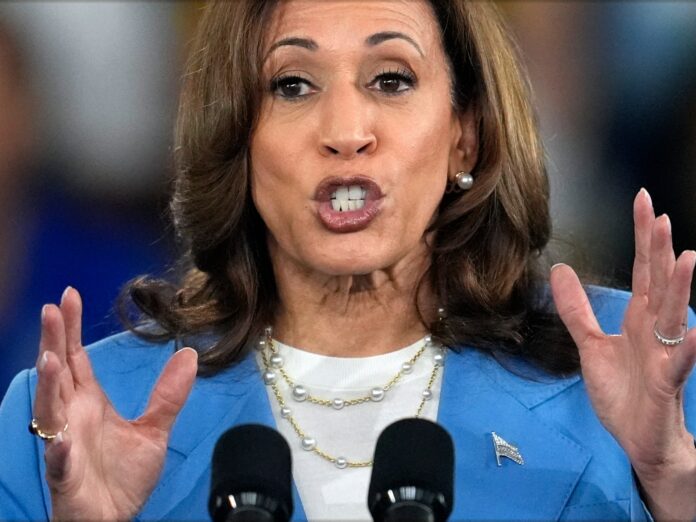US Democratic presidential candidate presents plan to tackle food ‘price gouging’, child care and housing costs.
Democratic candidate Kamala Harris has pledged to reduce costs and enhance economic security for all Americans in one of her initial policy speeches in the United States presidential campaign.
As the US vice president and Democratic nominee following President Joe Biden’s withdrawal from the race, Harris introduced a series of proposals on Friday aimed at strengthening the economy and combating food price gouging.
Speaking to a crowd of supporters in North Carolina, Harris stated, “I will focus on creating opportunities for the middle class. Together, we will establish what I refer to as an opportunity economy.”
Her plan includes a strategy to eliminate unreasonable price increases on groceries through a proposed federal ban. Additionally, she suggested providing $25,000 in assistance for first-time homebuyers, along with tax incentives for affordable housing developers.
Furthermore, Harris supported a $6,000 tax credit for newborns and an earned tax credit for individuals in lower-income positions without children. She also reiterated Biden’s commitment to reducing prescription medication costs.
Meanwhile, the Trump campaign has targeted the economy in its criticisms of Harris, branding her as “a radical California liberal who shattered the economy.”
In contrast, Trump outlined his economic vision in North Carolina, promising to combat inflation, eradicate job-killing regulations, and achieve an economic prosperity that would eliminate debt.
Trump’s lengthy speech veered into various topics, including critiques of Biden’s exit from the race and tangents on Harris’s demeanor.
Recent polls indicate that voters are more inclined to trust Trump on economic matters compared to Harris.
A survey by the Associated Press-NORC Center for Public Affairs Research revealed that 45 percent of respondents believed Trump was better equipped to handle the economy, while 38 percent favored Harris.
Approximately 10 percent of voters expressed no trust in either candidate’s ability to manage the economy effectively.
As the US economy grapples with high prices amidst the aftermath of the COVID-19 pandemic, Harris introduced her plan during a targeted effort in battleground states to leverage the momentum following her sudden entry into the race.
Officially nominated by the Democratic Party through a virtual roll call, Harris is set to accept the nomination at the upcoming Democratic National Convention in Chicago.
Biden, the former presumptive Democratic candidate, withdrew from the race last month following a challenging debate performance against Trump that heightened concerns about age.




